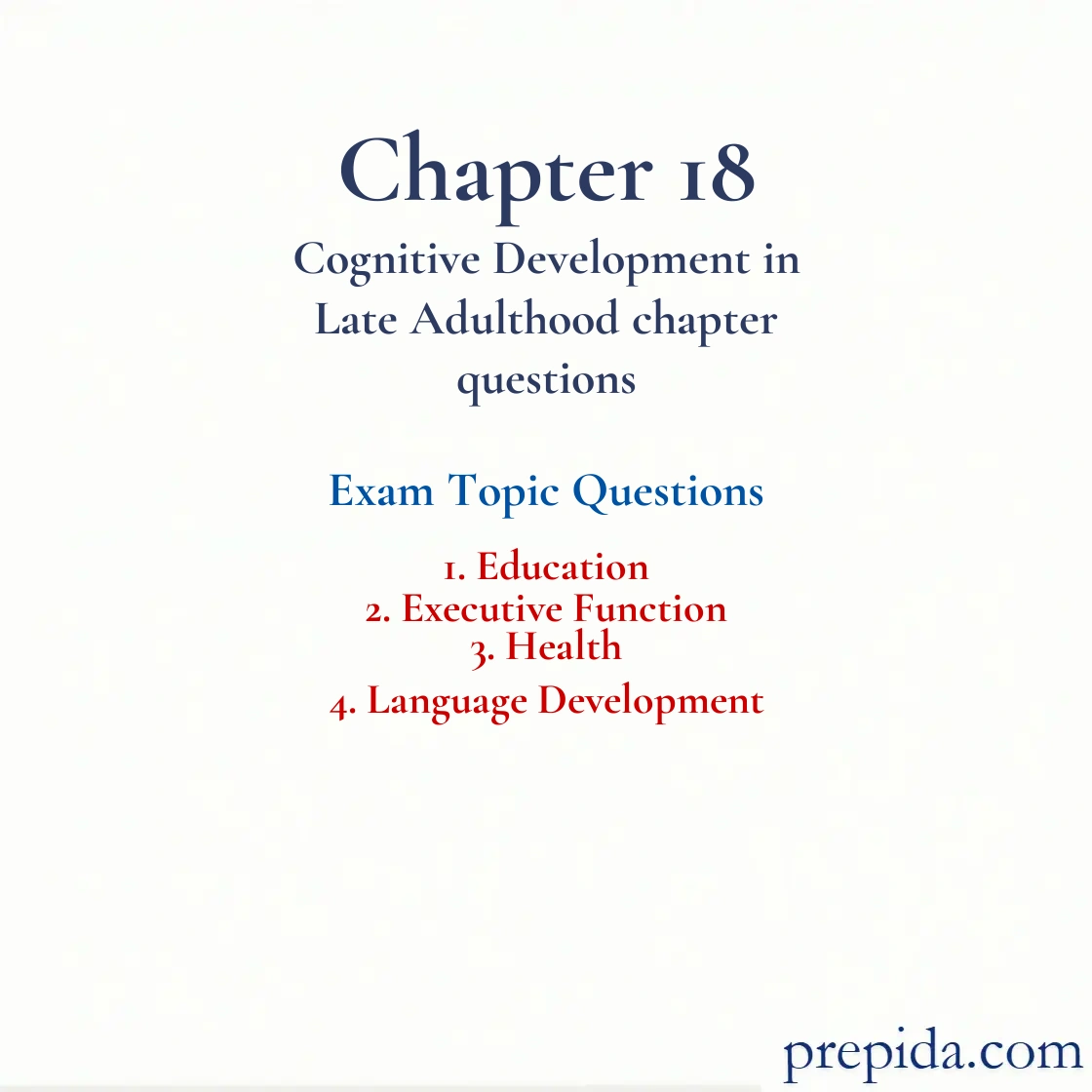
Which of the following is true of the influence of education on the cognitive functioning of older adults?
- Today's older adults were less likely to go to college when they were young adults than were their parents or grandparents.
- Fewer older adults are returning to college today to further their education than in past generations.
- For older adults with less education, frequently engaging in cognitive activities improve their episodic memory.
- Educational experiences have no impact or are negatively correlated with scores on intelligence tests and information-processing tasks.
Episodic Memory: The retention of information about the details of life’s happenings.
A study reported by Lachman and others (2010) revealed that older adults with less education had ________ than those with more education.
- lower interpersonal skills
- lower cognitive abilities
- higher incidence of mental disorders
- higher distractibility
Cognitive Processes: Changes in an individual’s thought, intelligence, and language.
Which of the following is true of executive function?
- It involves managing one's thoughts to engage in goal-directed behavior and to exercise self-control.
- It is unrelated to health, emotion regulation, and social functioning.
- It consists of a number of low-level cognitive processes.
- It shows considerable increase in late adulthood and is strongly linked to increase in working memory.
Executive Function: An umbrella-like concept that consists of a number of higher-level cognitive processes linked to the development of the brain’s prefrontal cortex. Executive function involves managing one’s thoughts to engage in goal-directed behavior and to exercise self-control.
Which of the following has been linked to lower cognitive performance, not only in older adults but also in young and middle-aged adults?
- hypertension
- arthritis
- cancer
- congestive heart disease
Operations: In Piaget’s theory, these are reversible mental actions that allow children to do mentally what they formerly did physically.
The concept of ________ emphasizes that changes in cognitive functioning may be linked more to distance from death or cognition-related pathology than to distance from birth.
- terminal decline
- terminal slide
- cognitive shift
- cognitive slide
Germinal Period: The period of prenatal development that takes place in the first two weeks after conception. It includes the creation of the zygote, continued cell division, and the attachment of the zygote to the uterine wall.
Psychotherapists have been accused of failing to see older adults because they may believe in stereotypes that label older adults as
- highly sensitive individuals.
- low-status individuals.
- arrogant individuals.
- pretentious individuals.
Socioeconomic Status (SES): Refers to the grouping of people with similar occupational, educational, and economic characteristics.
Many psychotherapists prefer not to work with older patients, labeling them as
- YAVISes.
- OPLAs.
- QUOIDs.
- NUIPs
One of the most common language difficulties that older adults experience is
- expressive aphasia.
- stuttering.
- making up new words that other people do not understand.
- the tip-of-the-tongue phenomenon.
Language: A form of communication, whether spoken, written, or signed, that is based on a system of symbols. Language consists of the words used by a community and the rules for varying and combining them.
Mae is 87 years old. She is most likely to have difficulty in understanding a person when he or she
- speaks slowly.
- has a face-to-face conversation with her.
- calls her on the phone.
- picks a quiet place to have a conversation.
Which of the following statements accurately describes the difference in language skills between older adults and younger adults?
- A higher working memory capacity of older adults compared with younger adults improves their comprehension of sentences.
- Older adults' speech is typically lower in volume, slower, and less fluent than younger adults' speech.
- Older adults are less likely than younger adults to omit key elements, creating discourse that is more fluent and easy to follow.
- When retelling a story, older adults are less likely than younger adults to compress discourse and more likely to improve the cohesiveness of their narratives.
Language: A form of communication, whether spoken, written, or signed, that is based on a system of symbols. Language consists of the words used by a community and the rules for varying and combining them.
________ refers to extended verbal expression in speech or writing.
- Narrative
- Embellishing
- Discourse
- Characterization